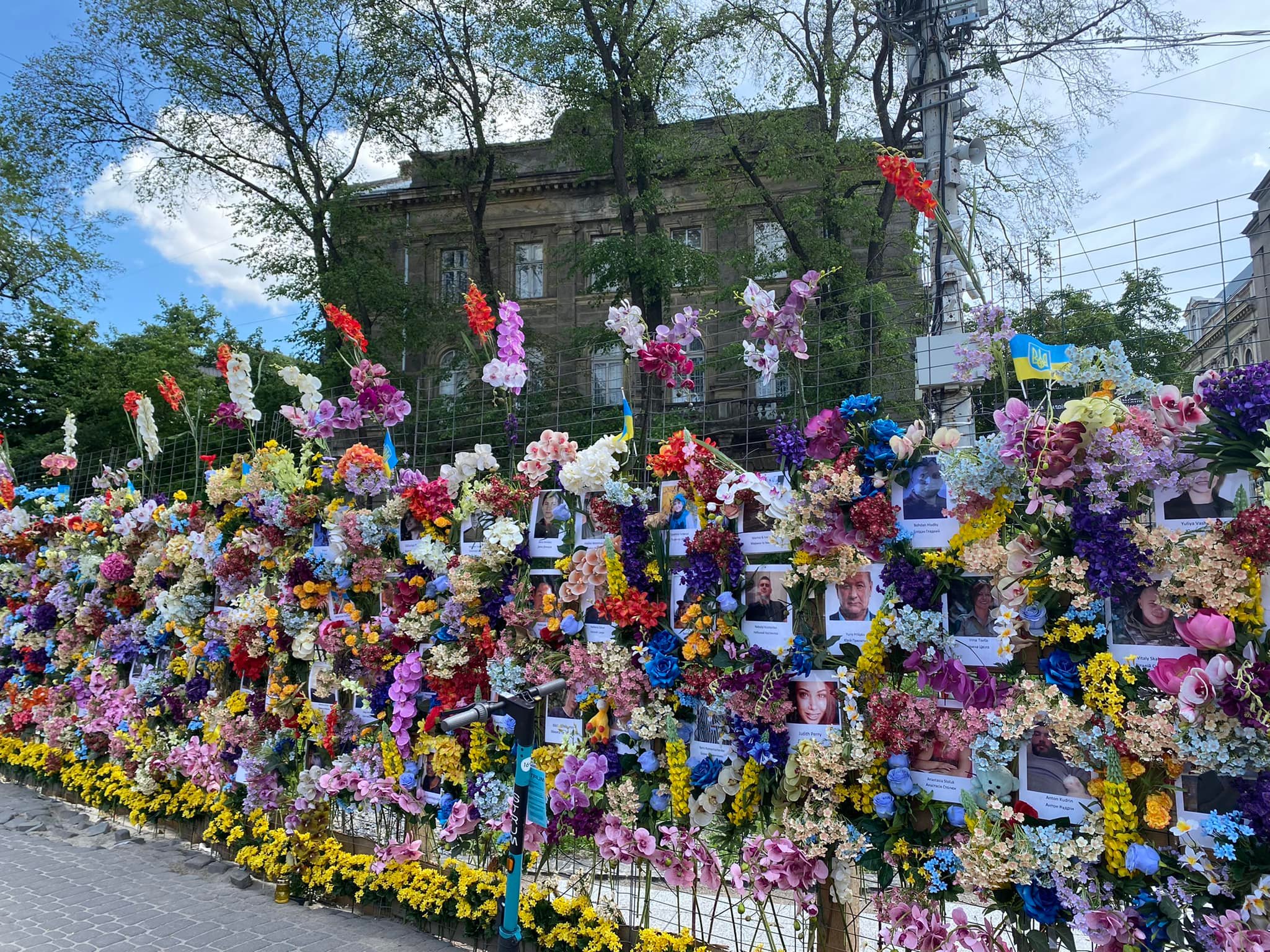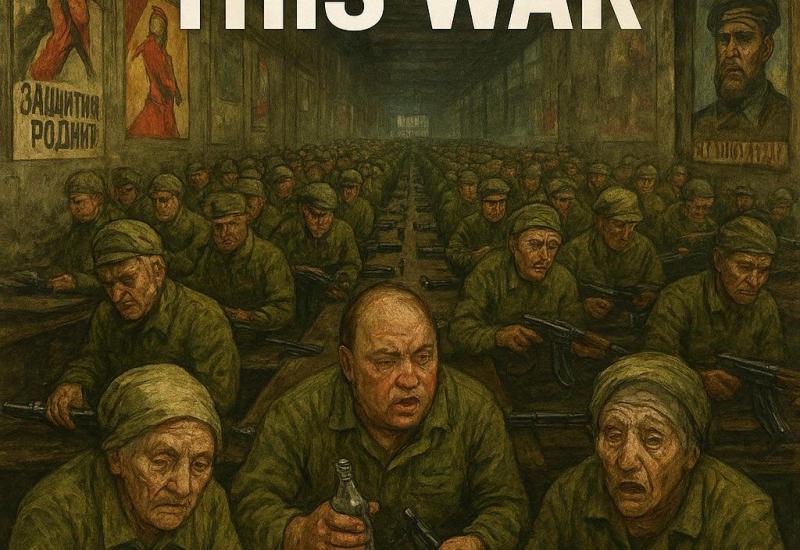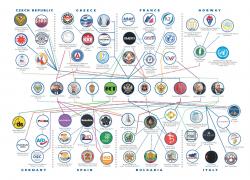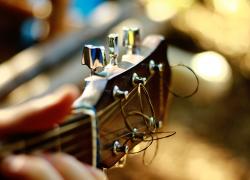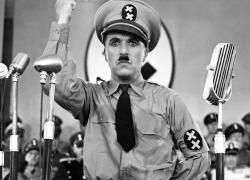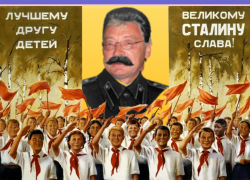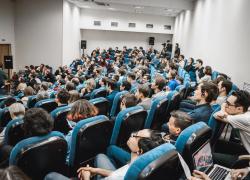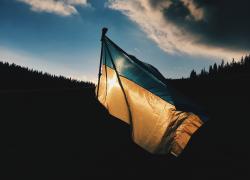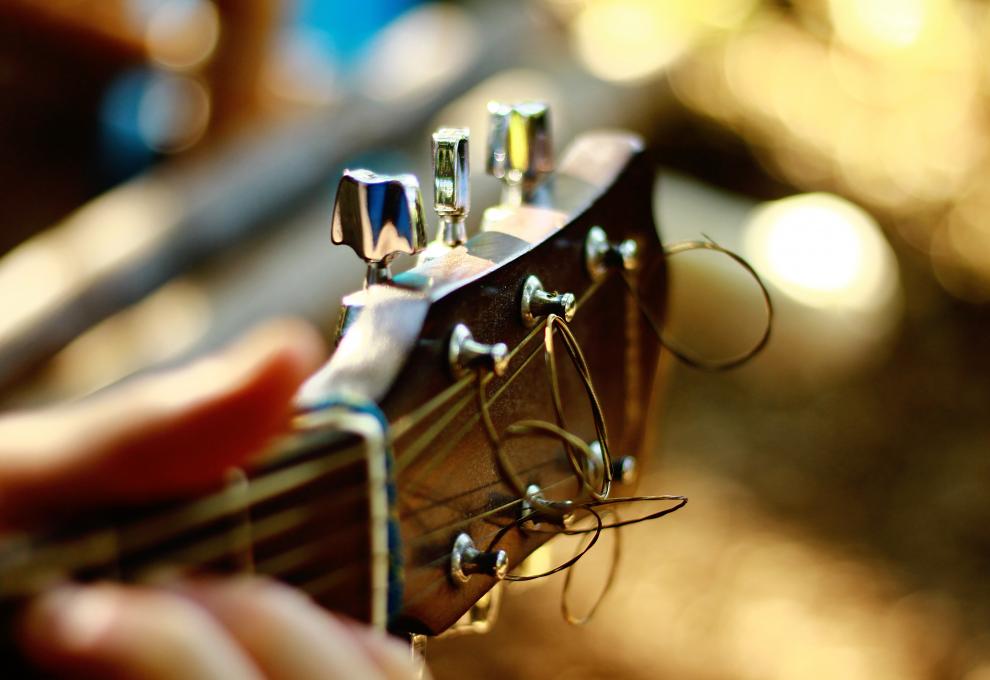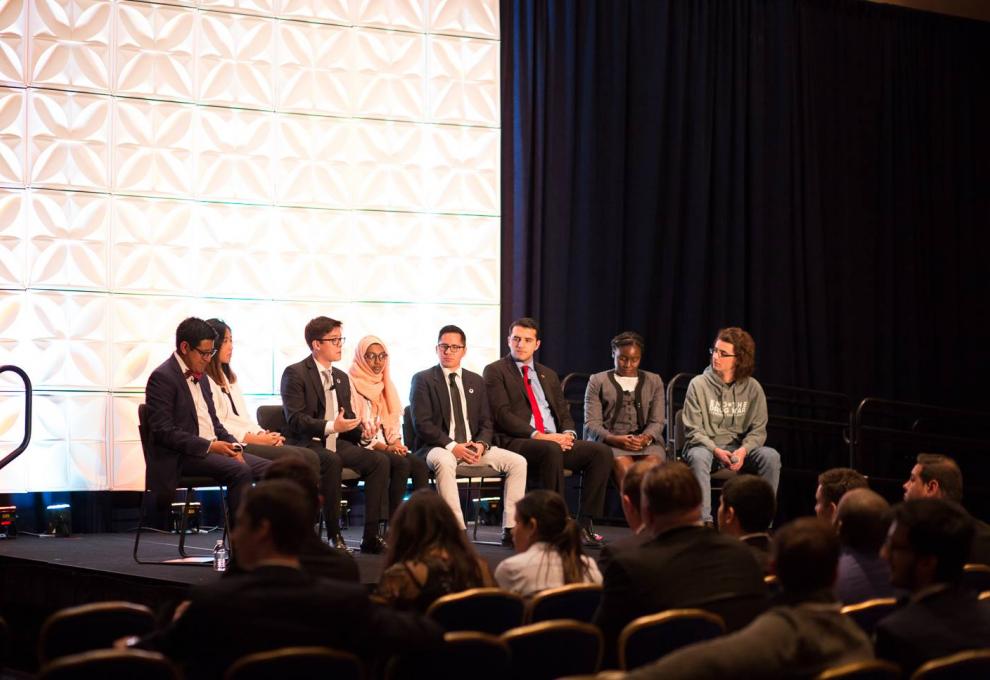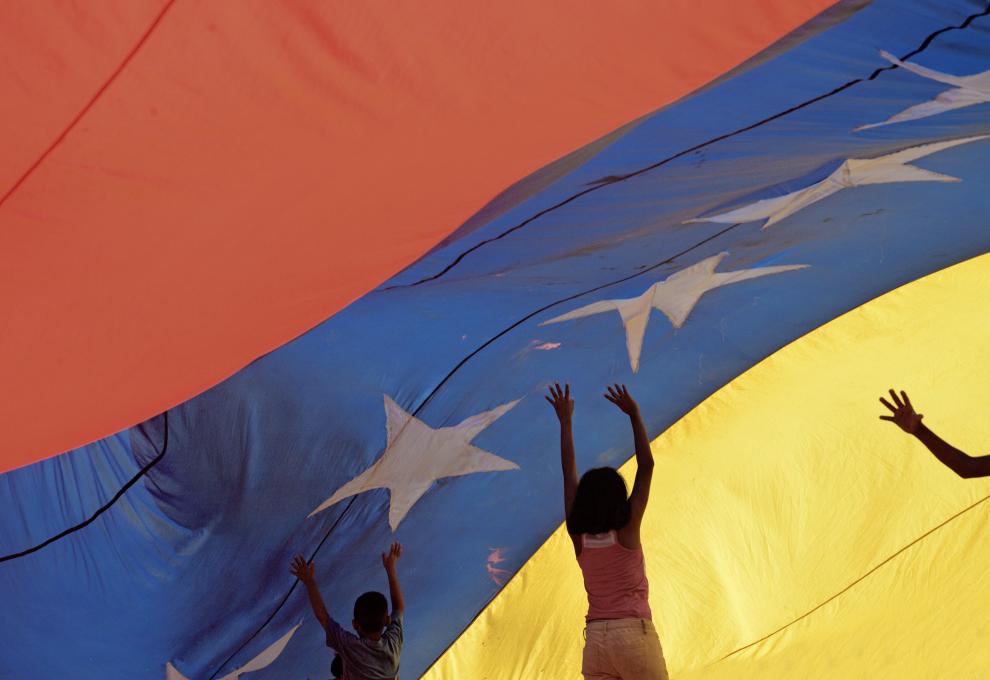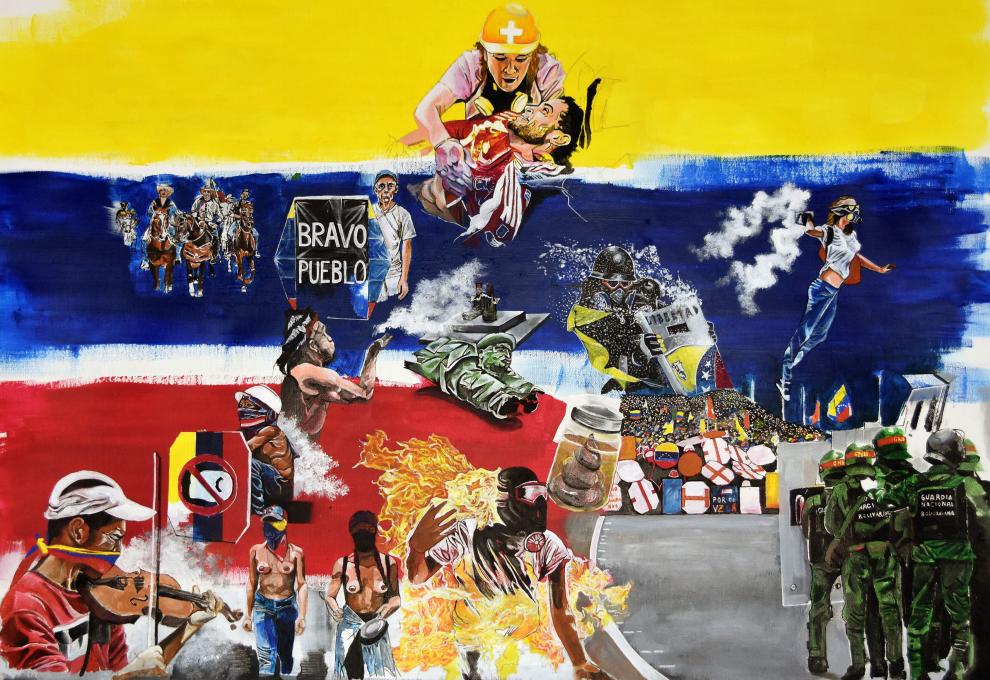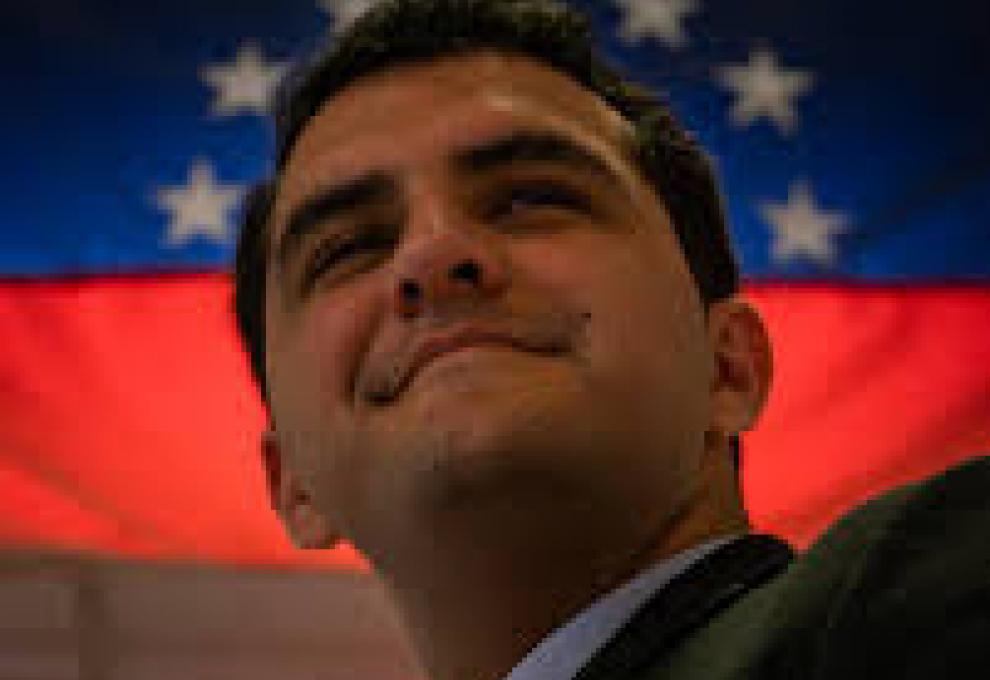Three Days in Lviv in Times of War - A Fragmentary Diary
Liane Bednarz travelled to Ukraine with the media network "Freedom Today" and its CEO Andreas Jürgens. There they met with Christian Gruber, who is working there as a volunteer and also as a war reporter. Together they travelled through the country and talked to Ukrainians on the ground. Here, Liane Bednarz describes her personal impressions during the first three days of the trip in Lviv in western Ukraine.
Arrival in Ukraine
So now the time has really come. We are driving into Ukraine. The blue and yellow flag at the border crossing gives me goose bumps. What will it be like to meet the people of this country, who seem so brave and determined from afar, who have been heroically defying Putin and his henchmen for three months now? At the same time, I cannot hide a certain inner unease. We really are in a war zone now.
The way overland leads through forests, villages and small towns. At the side of the road there are always small, strikingly beautifully decorated chapels, but we also pass many churches. One could still think that there is no war. But at some point we pass a roadblock, show the soldiers our papers and for the first time I experience visually what it is like to be in a country at war. A little later, at the hotel in Lviv, our first stop on the trip, I turn on the TV. There are many channels here in the country. And almost all of them are about the war.
Day 1 in Lviv, 24 May 2022, three months to the day after the outbreak of war.
At noon the next day, I speak for the first time with Ukrainians on the spot, i.e. here in Ukraine. Communication in English works well. They explain to me the current military situation in the south near Odessa and the strategically important city of Mykolaiv to the east. Very precise, but anything but desperate. They are incredibly warm and optimistic. I get a first inkling of the Ukrainian mentality and begin to understand where the so remarkable resilience and resistance of the people here against Putin comes from. From deep within the Ukrainian soul, apparently. There is no trace of displeasure, certainly not of despair. Talking to Ukrainians here in the country about the military situation gets under my skin.
When they speak Ukrainian among themselves, I am always amazed, as should also become apparent in the next few days, at how many words I recognize because they are so similar to their Polish counterparts. And with Ukrainians who don't speak English, the little bit of Polish I know by now sometimes helps, too. The similarity between the two languages, which - so the Ukrainians tell me - is much more pronounced than that to Russian, has something symbolic about it. For since the beginning of the war, Poland has proven to be a loyal and absolutely reliable friend of the battered country. It has taken in more than three million refugees and also supports Ukraine militarily with impressive determination. Among other things, with around 240 Russian-Soviet battle tanks. Germany was supposed to provide replacements for these. But this, like pretty much everything else in Germany, is a sticking point when it comes to supplying heavy weapons to Ukraine. Polish President Andrzej Duda has even accused the German government of "breaking its word".
Shame about the attitude of the letter writers around Alice Schwarzer
It doesn't feel good to be German these days. This mixture of hesitation and dithering and cowardice on the part of the German government has been embarrassing not only me for weeks. The same goes for Chancellor Olaf Scholz's defiant refusal to go to Kiev. And for the hubris and egocentricity of the writers of the “open letter” around the German feminist icon Alice Schwarzer. Germans, of all people, whose country was once liberated from Hitler by determined allies, are now thinking primarily of themselves. Of all people, feminist Schwarzer wants to appease Putin, even though his soldiers rape Ukrainian women, men and even babies. It grosses me out.
Their priority is not to support a country in which a mass murderer and war criminal is raging, but that Germany does not become a party to the war itself. Everything should be over as quickly as possible. They obviously don't care about the price Ukraine will have to pay for this. In a great act of presumption, these “letter writers”, as I call them, even go so far as to claim that it is a mistake to assume "that the decision on the moral responsibility of the further 'cost' in human lives among the Ukrainian civilian population falls exclusively within the competence of their government", because "the morally binding norms" are "universal in nature". What moral norm there should be that recommends the victim of an aggressor to surrender as soon as possible instead of helping the victim in the best possible way remains the secret of the letter writers.
My increasing horror at the actions, or rather inactions, of the German government and at the course of the German debate triggered my decision in mid-April to travel to Ukraine myself. Firstly, to show the Ukrainians at least my personal solidarity on the ground in my small way. Secondly, to experience for myself and thus better understand what the situation in the country is like and how the people, who unlike the letter writers are directly exposed to the war, deal with it. And finally, in the hope of giving them a voice so that it is better understood in Germany how unreal the course of the debate is and how much it misses the reality of life for Ukrainians in times of war.
Air raid alarm - suddenly the war is very close
No sooner have we said goodbye to the Ukrainians, with whom we were talking about the course of the war in the south, than I hear the siren for the first time at 12.43 pm. First on the warning app on my smartphone, then a few seconds later outside. Air raid alert. A word as if from another time. And yet very real now and here in Lviv, not even 800 km from Berlin as the crow flies. The hotel has a shelter. The guests go there quietly and calmly. I sit down on a chair, an inner fear comes up. I try to push it back and imagine that I am succeeding. But Andreas, who is sitting next to me, tells me later that my hands were shaking. This time it's all over quickly. At 1.04 p.m. the app and the siren give the all-clear with a different, positive-sounding tone. The app is practical. You set it to the oblast you are in. Oblasts are the regional administrative units of Ukraine, so they're kind of like federal states. We are in the Lviv oblast.
The "Bayraktar" song and the resolutely optimistic Ukrainian soul
I have an earworm: "Bayraktar". A song by Ukrainian singer and guitarist Taras Borovok, released in early March, celebrating the Turkish combat drone "Bayraktar", which Ukrainian forces used so successfully to fend off attacks on Kiev early in the war. Later, in April, the Ukrainians also managed to use Bayraktar drones to distract the anti-aircraft defence of the Russian Black Sea Fleet flagship "Moskva" so that they could successfully sink it shortly afterwards with Neptune missiles. The song lyrics are a biting mockery of the Russians, the Slavic melody rousing. There are now countless versions of it, such as one with Ukrainian soldiers in front of shot-up Russian tanks; the video for it shows them in good spirits, amused, with instruments and determined. It says a lot about the "spirit" of the troops, their morale and why they are so successful in repelling the Russian invasion. The version I heard first is a house remix. So pop culture can also play an important role in war.
In the early afternoon, Andreas and Chris show me the beautiful and very well-kept old town of Lviv. Aptly described by Wikipedia as "an outstanding example of the fusion of the architectural and artistic traditions of Eastern and Western Europe with those of Italy", it is part of the UNESCO World Heritage Site. And life pulsates in it. In the middle of the war. The outdoor restaurants are full, the shops open. No question: the resilience of the Ukrainian soul is also evident here. The people don't let Putin take away their joie de vivre. They are demonstratively defying him. But they also show their sadness.
The Wall of Remembrance at Soborna Square
The victims of the war are commemorated on a large wall, the "Wall of Remembrance" at Soborna Square. It is a fence that Leo Soto, a US student living in Miami, put up on his own initiative at the end of April. Laminated photos of dead Ukrainians from all over the country hang there, surrounded by an abundance of both artificial and fresh flowers in bright colors.
Flowers, someone tells us later, have a great significance in the country. Many buildings in the old town are decorated with flowers.
It hurts to stand in front of the "Wall of Memory". Many young people can be seen in the photos. Senselessly torn from life. Senselessly died because of the imperial madness of one man. In the middle of Europe.
We visit a good friend of Andreas, who is very successful in business on an international level. Like so many Ukrainians, she is now also working as a "volunteer" for one of the many organizations or initiatives that are helping to get aid to the front and to the places under attack. She, too, has this special mixture of unequivocal determination and warmth that I become more and more familiar with after only a few hours in the country. She tells us how she coordinates her professional life and her relief work.
Joy of life in times of war in the park along "Freedom Boulevard".
Back in the city, I take a look at the outside of the Opera House, which opened in 1900 and is also beautiful to the bone. As elsewhere in the city, Art Nouveau, Neo-Renaissance and Neo-Baroque have entered into a fascinating symbiosis here. Soon there will even be plays there again. The program is already set up outside.
In the elongated little park in front of the opera house, which runs parallel to Svobody Prospect, an almost Mediterranean feeling of life sets in, just as it does in the old town. "Svobody Prospekt" translates as "Freedom Boulevard". The name could hardly be more emblematic of the Ukrainians' fight for freedom who will not submit to Putin. Although an air raid alert can be expected at any time, people are strolling through the park, especially now, in the late afternoon. Their faces do not look disgruntled. Small groups of men are sitting on the benches, intensively playing cards, chess or mill. The fountains of the fountain installation directly in front of the National Opera jump up and down. Children are enjoying themselves. A group of young people perform tricks on their skateboards.
It seems surreal how a country like Ukraine can be invaded.
The youth revolt and sing loudly, including electric guitar, "Slava Ukraini" in the old town.
The later the evening gets, the more soldiers patrol the streets. Curfew is at 11 pm. Andreas and I walk through the old town and suddenly hear loud music. Young street musicians, accompanied by an electric guitar with a loudspeaker, sing "Slava Ukraini", the war song of these days, which is also a freedom hymn. "Glory to Ukraine" is the title translated. There are a few bars in the street and many young people are standing in front of them, exuberant. More people have grouped around the street musicians and are singing along loudly. The young generation could hardly show Putin more strongly how much they defy him and turn their backs on him. We get to talk to some of them and to the "Bayraktar" song. Andreas calls up the video of the house version on his smartphone and we all sing along together. The letter writers are very far away at this moment.
Meeting young people from Kharkiv
Shortly afterwards, in a kind of mixture of snack bar and bakery, where Andreas, who often stays in Ukraine, is a regular guest so to speak, we not only meet the warm-hearted staff, but shortly afterwards also a group of young men from Kharkiv. Kharkiv lies on the border to Russia in north-eastern Ukraine and is a good example of how little people in the West know about Ukraine. I do not exclude myself from this. Until the beginning of the war, I didn't even know about the existence of this city. However, a journalist friend who knows Eastern Europe and Russia inside out told me as early as the end of February that the Russian-speaking metropolis with its approximately 1.5 million inhabitants had been a thriving student city with over 50 universities. With many students from India and China.
The young people in the snack bakery confirm this. And they add that many Moroccans also studied there. They themselves fled the war to Lviv in the west about two months ago. Kharkiv was under heavy fire and was taken by the Russians. In the meantime, however, at least the city center and a few strategic villages around the city have been retaken, so that Russian artillery can no longer reach the city. At least that is the state of affairs this evening.
The young men are about in their late twenties, have finished their studies and had meanwhile gained a foothold in working life. Before the war. I get closer to one of them, who studied economics, then started his own business and speaks fluent English. Sometimes there are encounters like this that don't let you go. That evening, I really understood what makes the Ukrainian soul tick and how much the German debate bypasses it. This man from Kharkiv also radiates this special mixture of determination and optimism. And he tells me how important freedom is to Ukrainians. Giving up and surrendering to Putin is not an option at all.
Even more than territorial integrity, it is about freedom. For the young entrepreneur from Kharkiv who fled, but also for many other Ukrainians I spoke with, the idea that parts of their compatriots who have lived a free life so far could now become inhabitants of the Russian dictatorship is unbearable. He explains to me how much it is precisely about defending the values of freedom and confirms what I had heard before. Contrary to what some people in Germany seem to believe, Russian-speaking Ukrainians do not feel that they belong to Russia. This is true for some of them. The vast majority, however, feel Ukrainian. Germans with the neighboring countries of Switzerland and Austria should understand this very quickly. He proudly tells me how much effort he has made to speak Ukrainian since he came to Lviv. I am told this again and again over the next few days. Actually Russian-speaking Ukrainians are now striving to speak Ukrainian rather than Russian.
I'm not prone to excessive pathos, but just before we leave the snack bakery, my heart swells. One of the employees gives me strawberries. They taste fantastic. He sees that I am happy and then gives me a whole bowl to take home. I am very touched by this kindness.
Ukrainians do not see themselves and the Russians as Slavic brother nations.
In general, any form of declaration of Russia is absent in Ukraine. On the contrary. All the people I spoke to in Lviv and later in other parts of the country detested the Russians. The Western idea of two Slavic "brother peoples" is completely wrong. The Russians have always tried to suppress the Ukrainians and their culture and language. Not to mention the "Holodomur", with which Stalin artificially starved the Ukrainians from 1932 to 1933. Ukrainians think Russians are liars and bandits. The phrase " Ukrainian incomprehension of the letter writers around Alice Schwarzer
Ukrainian incomprehension of the letter writers around Alice Schwarzer
When I tell Ukrainians about the German discussion about the letter writers around Alice Schwarzer or, on the political side, about the two SPD politicians Ralf Stegner and Rolf Mützenich, they look at me with incomprehension. It is not so easy to explain to them the mindset of those people. Because it simply has nothing to do with the reality of the bravely optimistic Ukrainians. I wonder if even one of the letter writers has ever been to Ukraine. Here on the ground, the mantra "heavy weapons prolong the war" proves to be a formula from cloud cuckoo land. If Putin is not pushed back decisively militarily, that will be it for Ukraine. Even in the event of a ceasefire, there is always the threat of new trouble. We have been seeing this here without any illusions since 2014. bandyty rosiysʹkyy" also appears in the "Bayraktar" song. And Ukrainians think Russia is a society in which human life counts for nothing. Putin has been demonstrating just how much this is true in a particularly bestial way for three months now. The banditry is indeed staggering, too, if one thinks of the many pictures and reports about what Russians take everything from conquered Ukrainian towns and villages, up to and including frying pans. The Ukrainians I talk to are proud of how positively their country has developed economically in the last ten years, despite the corruption (which is now also being fought), and how it has turned more and more towards the West.
The loss of Crimea at that time is painful for many Ukrainians. Some went there every summer. One tells me that a family member had a holiday home there. He was given the choice of accepting the Russian passport or selling the house to the Russians for a ridiculous price. He chose the latter.
Day 2, 25 May
4.58 am. My second air raid alarm. So it's true that Putin likes to attack early in the morning and terrorize people that way at least with the loud siren sound. We go to the shelter again. This time my hands are not shaking. I'm so tired that I even fall asleep and am woken up by the all-clear at 6:24. So this time the alarm lasted almost an hour and a half.
On a late afternoon walk through the city, I pass the magnificent Dominican Church (St. Eucharist Church) on Stawropihijska Square. I go inside. A service is taking place. Fascinated, I sit down on a bench and attend it for a while. Yesterday, an interlocutor had already told us that there is a Greek Catholic Church here in western Ukraine. Its official name is the "Greek Catholic Church of the Holy Eucharist". The service - or should we say "mass"? - is clearly different from a Catholic mass. For example, the priest suddenly changes location and moves from the main altar to an adoration bulge on the left of the church. There he celebrates first facing the altar and then facing the congregation, which has turned 90 degrees in his direction of vision
On the web, I came across an article from the Washington Post, that spoke to my soul: "It is the height of inhumanity to insist that Ukraine hand over any part of its population to the Russian occupation indefinitely."
In Germany, after Colonel Roderich Kiesewetter, another CDU MP is now becoming more than obvious. Johann Wadephul, one of the deputy chairmen of the parliamentary group. He is threatening the German government with a committee of enquiry because of the failure to deliver heavy weapons to Ukraine. After all, there has been a corresponding Bundestag resolution since the end of April. Wadephul speaks of "incompetence, sloppiness, total failure".
Another air alarm shortly after 8 p.m.
At 8.03 p.m. the siren goes off again. Another air alarm. You kind of get used to it. Humans can be very resilient. I sit in a restaurant opposite the hotel and eat Ukrainian beetroot soup. Or rather ate. Had just paid. Then came the siren. The waitress points to the door to the shelter. I decide instead to sprint quickly to the hotel. Definitely the right decision. In the shelter there - Andreas and Chris are there shortly after - we meet foreign journalists and quickly talk about the current military situation. I learn something new.
Until now, it was always said that one had about 15 minutes to go to the shelter in Lviv. Because so far in the war, the Russians have fired conventional KH-555 missiles at Lviv from the Black Sea, which is where the time figure comes from. Now, however, and the foreign journalists explain this to me very precisely, Russia has had hypersonic missiles of the type "Iskander" stationed just 50 km away from the Belarusian border since a few days. These would be in Lviv in two and a half minutes. However, almost all experts believe that Putin is only interested in deterrence on the one hand and tying down Ukrainian troops on the other, who will then not be able to support the Donbass in the east. So we do not see any increased danger for Lviv for the time being. The stationing of a new military commando of Belarusian soldiers, which was announced almost at the same time, seems to us to have been ordered for the same reasons.
Moreover, the foreign journalists tell us that - after I told them about it and asked them about it - these unworldly discourses and letter writers like in Germany do not exist in their countries. On the contrary, what I report, especially from the letter writers, is met with great incomprehension from the journalists.
The Eurovision Song Contest (ESC) winner are in the hotel lobby - exuberant mood
The air raid alert takes an annoyingly long time. At 9.49 p.m. the all-clear finally comes. I sit downstairs for a few minutes longer as I am engrossed in reading articles on my iPhone. Then I walk up the steps to the lobby and am amazed. A big crowd, beaming faces. Andreas, who was already upstairs, comes up to me: "Liane, the ESC winners are here". And indeed. Three members of Kalush Orchestra are sitting on a couch, including the singer with his pink hat. One of the dancers is at the front. The mood is exuberant. New fans keep taking a seat on the couch as if in a tree-change. Selfie time. The band sings their ESC victory song "Stefania" with casual cool hip-hop gestures to background music from the tape, and everyone sings along enthusiastically. The Ukrainian soul again. A party shortly after the air alarm.
Evening talks about the broken down by savings Bundeswehr, the Eurofighter and the situation in Kharkiv.
Later in the evening, we sit together for a long time with the other journalists from abroad we met in the shelter. Military experts. I listen spellbound to what they have to say, especially about US, UK and Russian weapons systems.
Somehow we get to talking about the Bundeswehr and the Eurofighter. I go up to my room and get the equally profound and amusingly written book "Bedingt einsatzbereit: Wie die Bundeswehr zur Schrottarmee wurde" (2019) by Constantin Wißmann, which I read at the beginning of May, and go back to the lobby. Then I read a passage on the Eurofighter, which describes how the originally planned use as a so-called "multi-role aircraft", which can both fire guided missiles in air combat with other combat aircraft and drop laser-guided bombs for ground bombardment, turned out to be an illusion. Because the design does not do that. The reason for this is that the guided missile can get too close to the main ground bombardment weapon and collide with it. Wißmann summarizes this faulty design in his typically witty style as follows:
"The history of the Eurofighter, which, as I said, is by far the most expensive armament project of the German government, can be summarized like this: They wanted an aircraft that could chase other aircraft. Then it was supposed to be able to drop bombs at the same time. Now it has become an aircraft that can be either a fighter or a bomber, but not both at once."
We all have to laugh.
Shortly afterwards, one of the journalists tells me that some in the Western world simply don't understand that Ukraine is defending the values of the liberal West. The Ukrainians would understand that much better and also express it. Those who still seriously practice appeasement towards Putin have not understood anything. Now it is up to the West to decide whether it is only ostentatiously, but unfulfilled, carrying its values in front of it, or whether it is really living them. I completely agree with him and am even more ashamed of the German government and its more than deficient support for the battered but still so bravely optimistic country here.
We also talk about Kharkiv and the question of whether and how safe it is there now. The Ukrainian army has managed to retake the villages around the city that are crucial for the Russian artillery, so that the artillery can no longer reach the city. But the people from Kharkiv we had met the night before pointed out to us that the "Grad" had a greater range of fire than the normal Russian artillery. "Grad" is the Russian term for "hail" and here it means the BM-21 multiple rocket launcher. In the end, the prevailing assessment is that Kharkiv is quite safe, even if we are somehow not sure of that either.
Day 3, 26 May
I post my morning thoughts on Facebook:
"The demands of some "peace activists" for "realpolitik" over the cruel reality of Ukrainians means throwing territory down Putin's throat. All the Ukrainians I have spoken to so far, however, do not want regions to become part of Putin's dictatorship and the people there to have to give up all their freedoms.
The fear that their compatriots in the east and south will lose their freedom and be subjugated by Putin is what drives Ukrainians in particular. Even more than territorial integrity per se. Young university-educated people who fled the university town of Kharkiv near the border with Russia told me this particularly forcefully."
The Ukrainian spirit: Foreign Minister Kuleba's humour in Davos
Ukrainians are not only brave, they also have a great sense of humor, even now in times of war. I see on Twitter what Ukrainian Foreign Minister Dmytro Kuleba said in Davos and I have to laugh again: "'And then there is the saga of the cheetah tank, to follow that to the end I need popcorn', the minister jokes." Again, I have come a little closer to the Ukrainian soul, the Ukrainian spirit.
Early in the afternoon there is terrible news. Kharkiv is under fire again. In the center, even. Seven dead. So we were clearly too optimistic last night.
#MLRSforUkraineNow is the top trending here on Twitter. MLRS stands for "Multi Launch Rocket Systems", i.e. for multiple rocket launchers, which are heavy artillery. I post the exact same thing on Facebook and Twitter as well. I share a tweet:
"Ukraine's supreme commander says the price of delayed arms shipments will be measured in the lives of Ukrainians who have defended the world against Ruskism. #Ukraine needs arms to hit Russian troops at long range," General Zaluzhny said.
#MLRSforUkraineNow #ArmUkraineNow"
By chance, I get into a conversation with a woman and her little daughter. I ask them where they come from. From Kharkiv, the mother tells me. Of all places. Unfortunately, the husband and father have to stay there. But he is safe. They also tell me about the shelling today. But they are undaunted. Everything will be all right.
Pragmatism on the way to the shelter
20:39 Lviv. A beautiful summer evening. Outside, life is pulsating. I'm in the hotel, just about to start writing. Then the siren goes off again, first on the app, shortly afterwards outside. You learn something new. I don't just run anymore, but think about what I'll take with me down to the shelter. As usual, I quickly grab my bag with the papers and most important things. This time, however, I also think of the iPhone charging cable. There are sockets down there. That way I don't have to ask other people for a powerbank again. I forgot mine in Hamburg.
I document every air raid alert on social media so that it is better understood in Germany how difficult Ukraine's situation is. Although the Ukrainians are impressively calm about it, the air raid alert is still terrorizing, especially when it goes off early in the morning around five o'clock, waking people from their sleep and making them overtired.
10.38 pm. The air raid alert is lifted. At two hours, it was the longest for me so far.
Tomorrow we will continue southeast to the Carpathians. From there we want to continue to Kiev with a short stop in Winnytsia.
By Liane Badnarz
Liane Bednarz is a German publicist and lawyer. The liberal-conservative publicist has publications in ZEIT, SPIEGEL, NZZ, FAS, FAZ-Objection, Tagesspiegel and many others. Now she also writes for Freedom Today Network

